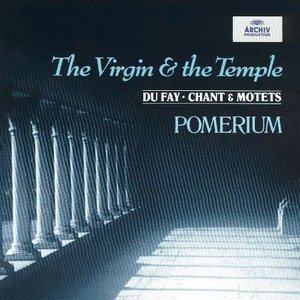Guillaume Dufay (most probably 1397 - 1474) was an early renaissance compos… Read Full Bio ↴Guillaume Dufay (most probably 1397 - 1474) was an early renaissance composer, and the first of many polyphonic masters from the Low Countries (modern Belgium, the Netherlands, and northern France).
He was not an innovator, with the exception of a few late works, and wrote within a stable tradition. He was one of the last composers to make use of mediaeval techniques such as isorhythm, but one of the first to use the harmonies, phrasing, and expressive melodies characteristic of the early Renaissance. His compositions within the larger genres - masses, motets, and chansons - are mostly similar to each other; his renown is largely due to what was perceived as his perfect control of the forms in which he worked, as well as his gift for memorable and singable melody. During the fifteenth century he was universally regarded as the greatest composer of the time, and that belief has largely persisted to the present day. Dufay, who wrote mostly church music, was a priest. His most famous motet is probably Nuper rosarum flores composed for the consecration of the cathedral of Florence in 1436.
He was not an innovator, with the exception of a few late works, and wrote within a stable tradition. He was one of the last composers to make use of mediaeval techniques such as isorhythm, but one of the first to use the harmonies, phrasing, and expressive melodies characteristic of the early Renaissance. His compositions within the larger genres - masses, motets, and chansons - are mostly similar to each other; his renown is largely due to what was perceived as his perfect control of the forms in which he worked, as well as his gift for memorable and singable melody. During the fifteenth century he was universally regarded as the greatest composer of the time, and that belief has largely persisted to the present day. Dufay, who wrote mostly church music, was a priest. His most famous motet is probably Nuper rosarum flores composed for the consecration of the cathedral of Florence in 1436.
More Genres
More Albums
Load All
No Artists Found
More Artists
Load All
No Albums Found
No Tracks Found
05Plainchant for Vespers I (Recollectio festorum beate Marie virginis): Deus in adiutorium meum0:41Alexander Blachly
06Plainchant for Vespers I (Recollectio festorum beate Marie virginis): Antiphon: Tenebre diffugiunt/Psalm 112: Laudate pueri Dominum3:18Alexander Blachly
07Plainchant for Vesper I (Recollectio festorum beate Marie virginis): Antiphon: Solem iusticie regem paritura supremum/ Psalm 116: Laudate Dominum omnes gentes2:12Alexander Blachly
08Plainchant for Vespers I (Recollectio festorum beate Marie virginis): Antiphon: Gabriel archangelus Mariam salutat/Psalm 145: Lauda anima mea Dominum4:28Alexander Blachly
09Plainchant for Vespers I (Recollectio festorum beate Marie virginis): Antiphon: Non concava vallium/Psalm 146:Laudate Dominum quoniam bonus est psalmus4:15Alexander Blachly
10Plainchant for Vespers I (Recollectio festroum beate Marie virginis): Antiphon: Virgo puerum sistit in templo/Psalm 147: Lauda Iherusalem Dominum3:31Alexander Blachly
12Plainchant for Vespers I (Recollectio festorum beate Marie virginis): Responsorium: Surge propera, columba mea3:08Alexander Blachly
Genre not found
Artist not found
Album not found
Search results not found
Song not found
Dufay: The Virgin And The Temple
Alexander Blachly Lyrics
To view the lyrics for a particular track, select it from the track list above, or search for it.
